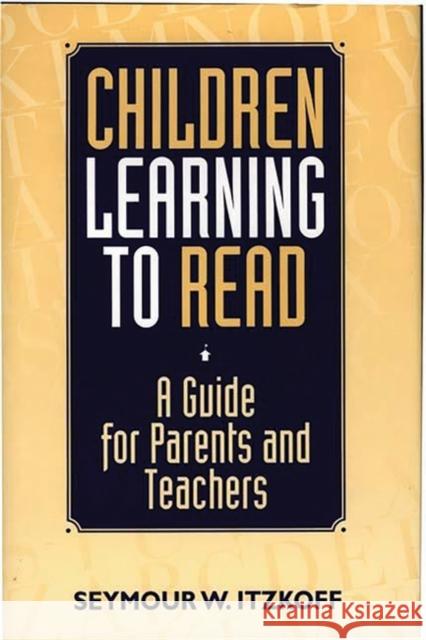Children Learning to Read: A Guide for Parents and Teachers » książka
Children Learning to Read: A Guide for Parents and Teachers
ISBN-13: 9780275954369 / Angielski / Twarda / 1996 / 216 str.
This is a unique book for parents, educators, and policymakers. It is alone in setting forth a clear presentation of the learning stages through which children must pass in order to become fluent, independently literate readers and writers. It explains the developmental dangers unique to each child that parents and teachers may have to confront, as well as the educational confusions and pathways to success that may determine the educational fate of each child. It illustrates the learning process clearly and nontechnically, and does not hesitate to point to the educational errors as well as successes in the teaching of children to read. It will be controversial because of its clarity and scientific accuracy.
This volume brings together the sciences of psycholinguistics and developmental psychology with the practical knowledge of classroom practice in literacy education to create a unique, but accessible explanation of how children learn to read. It explains the necessary educational and pedagogical steps that parents and teachers both can take in assisting the child to make a smooth transition from infant babbler to eight-year-old fluent reader. It also points to the possible developmental as well as educational danger signals that tell us when things are not going as they should and suggests what we can do to overcome the problems, slowdowns, and seeming failures to learn to read and write.
This volume discusses such important issues as emergent literacy or reading readiness; phonics and slow reading; fluent reading and the reading system; the dangers of the first-grade Rubicon; reading problems of unique children; the dangers and benefits of Whole Language reading rograms; Reading Recovery for endangered young readers; the role of writing; parents, TV, and the school program. The book is clearly written, uses nontechnical terminology, and should provide teachers and parents a guide to evaluating the progress of youngsters from the time they approach child-care and pre-school stages of socialization to that point where they should be reading independently for pleasure as well as searching for information and subject-matter competency.











